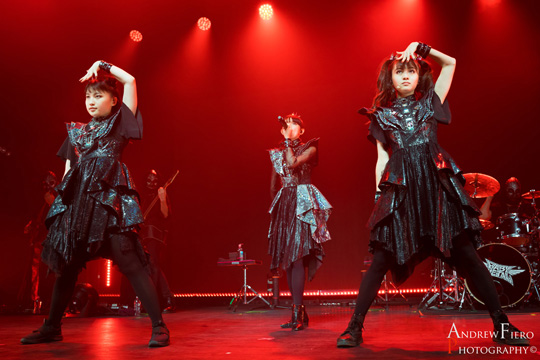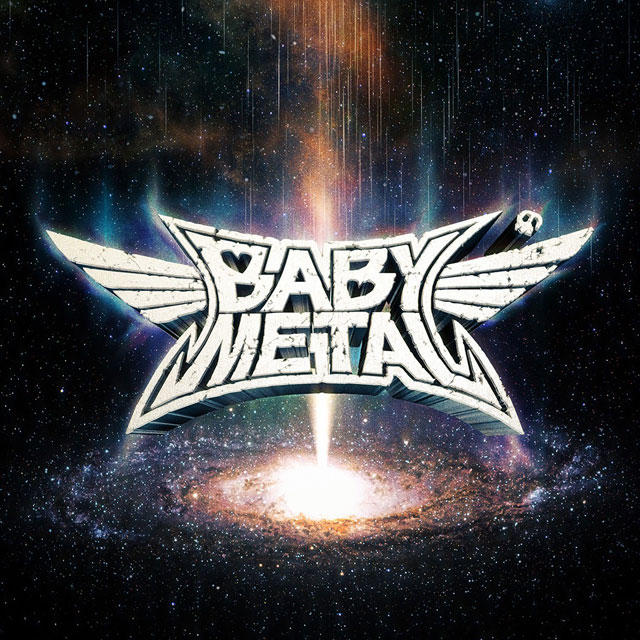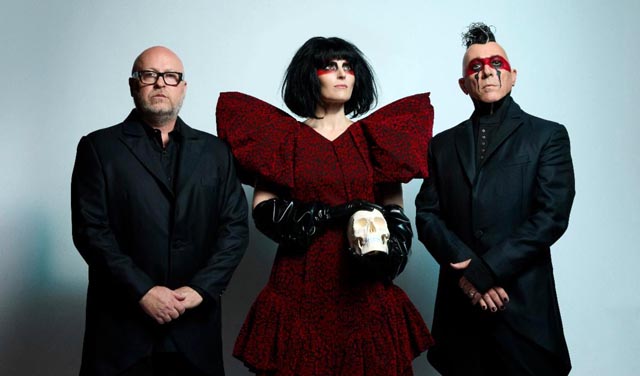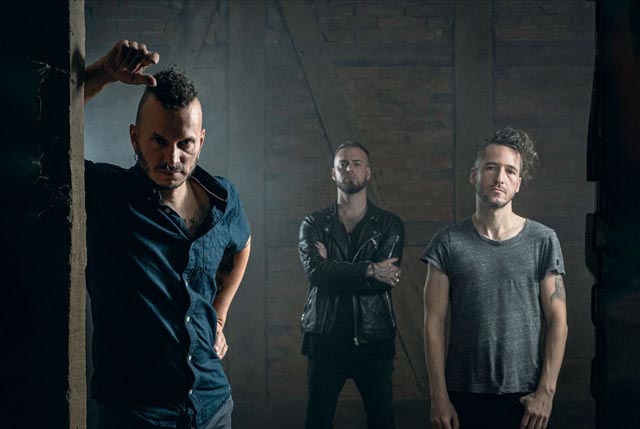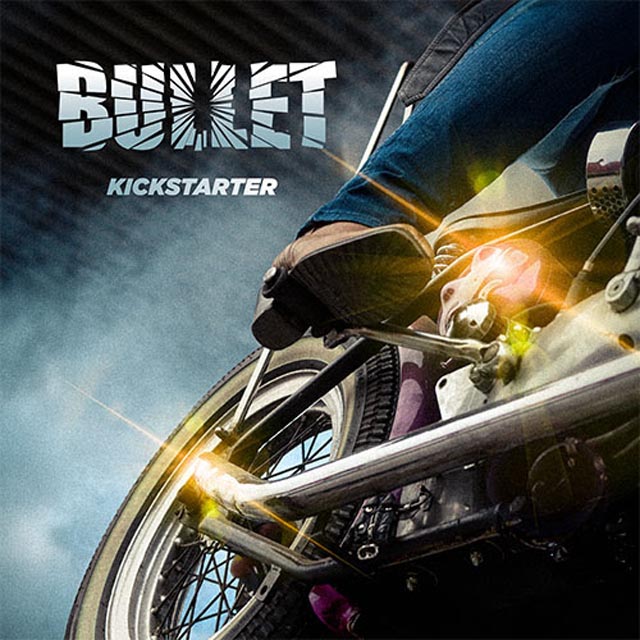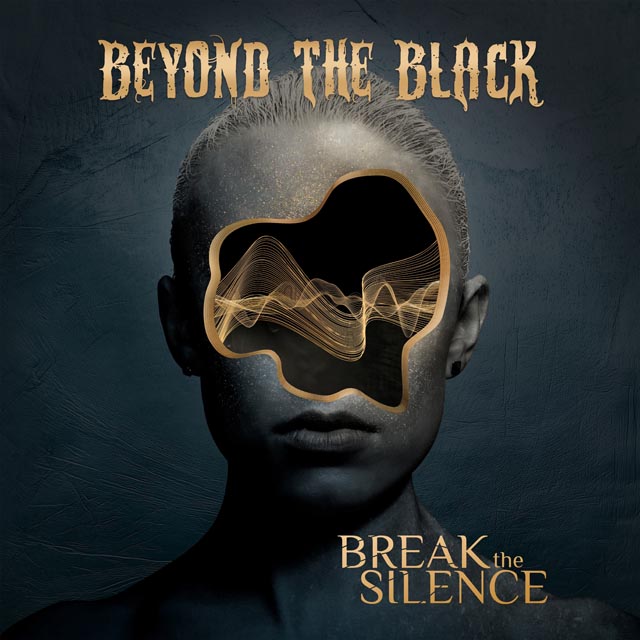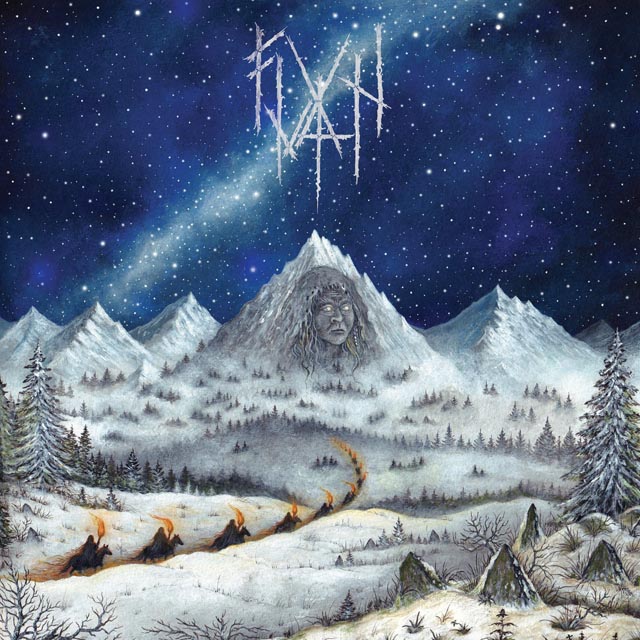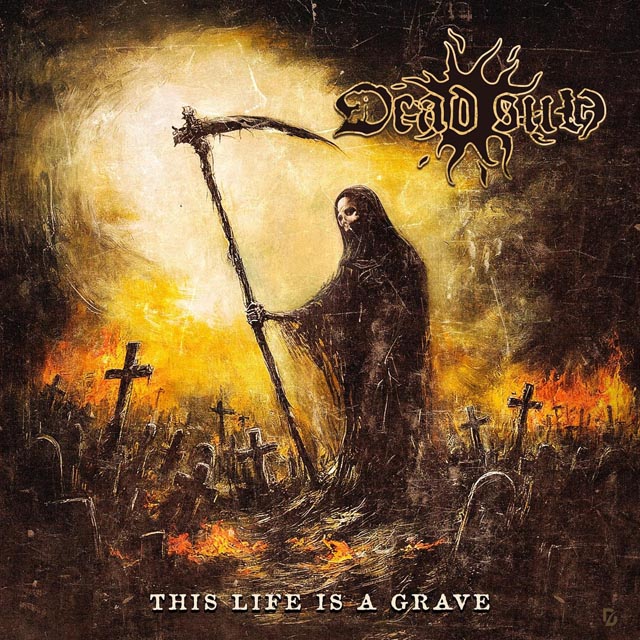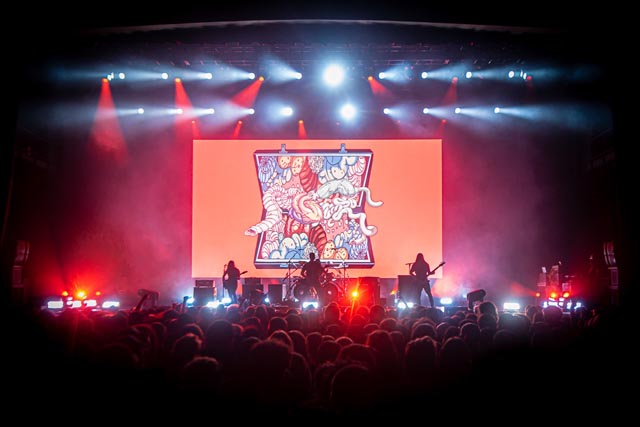
Photo Credit: Robert Forte
By far, Babymetal is one of the most divisive bands in the realm of heavy music. While the band boasts a fervent legion of die-hard fans worldwide, it’s equally fair to assert that Babymetal likely has just as many detractors. However, this is the reality for a band that endeavors to seamlessly meld the theatrics, aesthetics, and DNA of something akin to J-pop with the ferocity of aggressive music.
In Japan, this style of music is often referred to as Kawaii metal, which loosely translates to idol metal. A more simplified description of Kawaii Metal would be to say that it blends sugary, pop-oriented lyrical melodies with thrash metal. To illustrate this, consider a Babymetal song like “Awadama Fever.” It features angry and aggressive guitar riffs, blast beats, and lyrics about “bubble ball fever” and chewing gum. The origins of Kawaii Metal can be traced back to the early 2010s. While some acts within the genre have achieved success beyond Babymetal, such as Ladybaby, Babymetal is often credited not only with the genre’s success and exponential growth but also with its creation.
Despite their tremendous success and offering of something extremely unique in the world of heavy music, Babymetal remains a particular and acquired taste. This observation can be applied to many forms of aggressive, heavy music. This theme extends to all three bands that make up the touring production of the ongoing Babyklok tour, which features not only Babymetal but also death metal legends Dethklok and guitar prodigy Jason Richardson of Born of Osiris, Chelsea Grin, and All That Remains fame. The tour recently stopped at the MGM Music Hall at Fenway in Boston, Massachusetts, playing to a nearly sold-out crowd on September 14, 2023. The guitar virtuoso Jason Richardson was the first performer to take the stage at the MGM Music Hall in Boston.
Richardson is a sublime player and ranks among the highest level of musicians working in heavy music today. Pinpointing the specific style of metal Richardson aims to embody as a solo artist is a challenge. His solo efforts, including his 2022 LP “II,” often blend djent with heavy atmospherics and subtle electronic elements. The real question is how this all translates to a live performance. The answer largely depends on the individual’s taste, much like Babymetal. Richardson, playing alone on a well-lit stage, is more likely to cater to acquired tastes rather than organically appealing to the masses. Richardson’s performance in Boston showcased his exceptional talent. However, the absence of a big stage production, a backing band, limited lyrics, and nothing else to captivate the audience beyond Richardson himself led to a sense of monotony after a song or two. This is not meant as a slight against Richardson’s live performance or a critique of his technical prowess. The reality is that a single musician on a massive stage playing instrumental music is unlikely to maintain the attention of a large crowd, especially if most of the audience was there to see the other bands on the bill, as seemed to be the case in Boston.
Jason Richardson

Photo Credit: Robert Forte
Dethklok, a fictional melodic death metal band created by Brendon Small, gained fame through the Adult Swim animated television series Metalocalypse. Small took the band from the animated realm into the real world, releasing a series of full-length LPs that began with 2007’s Dethalbum. The success of Dethalbum not only led to more Dethklok records but also inspired Small to take a version of the band on the road, a venture he has sporadically pursued for nearly fifteen years. Like Babymetal, Dethklok’s live performance and music are either of interest to you or not. Apart from sticking to the death metal playbook musically, the band performs live without front-stage lighting while an animation reel from the Metalocalypse universe plays behind them. In Boston, this meant that the audience witnessed dark, silhouetted figures performing to a backdrop of wicked, devious, gory, and sometimes downright frightening animation. It’s doubtful that Dethklok could convert someone who isn’t already into aggressive music into a death metal or Dethklok fan. Likewise, someone attending a Dethklok show without prior knowledge of the band or the Metalocalypse connection may find it less engaging.
Why, you might ask? Simply put, Dethklok’s live performance in Boston and elsewhere could easily be described as a band playing a soundtrack to a television show or a movie. This live configuration mirrors the type of productions seen at amphitheaters in the summer, where orchestras play movie soundtracks as the film plays in the background. If you were a death metal fan or enjoyed the unique animation accompanying the performance, Dethklok’s show in Boston would likely have appealed to you. However, if you were only a casual fan of heavy music and didn’t have an affinity for Metalocalypse, the cartoon show Dethklok’s set in Boston might not have held your interest. Once again, similar to Richardson’s music and live performance, Dethklok caters to a specific taste. You either want the full experience or you don’t.
Dethklok
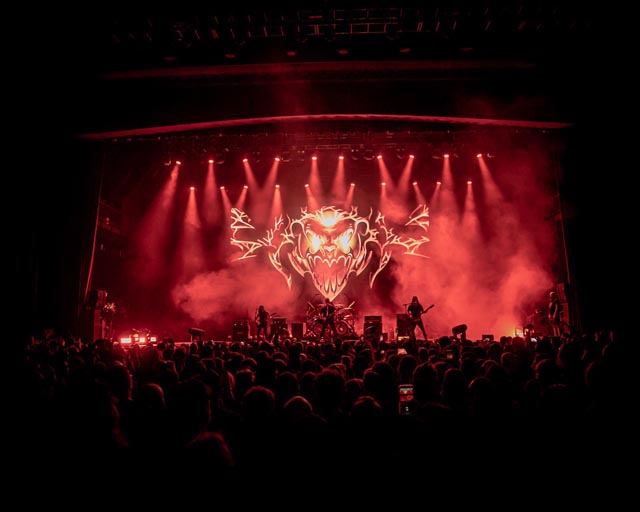
Photo Credit: Robert Forte
In Boston, most of the fans attending the MGM Music Hall were clearly there to see Babymetal, Tokyo’s own sensation. To echo the tour’s theme, how one felt about Babymetal’s live performance in Boston likely depended on their affinity for the band’s music or, at the very least, their appreciation for Kawaii metal. Kawaii metal is not the most accessible of music genres. Combining cute and sugary pop-based lyrics with growling riffs and the intensity of heavy metal will either resonate with you or not. The Boston show followed the typical Babymetal live performance format: Su-metal, Moametal, and Momometal, the three lead singers, commanded the front of the stage while their Kami band played the actual music in the background. Choreographed dance routines and an immersive stage production added to the spectacle, but like the previous acts, the show began to feel repetitive.
The band seems to acknowledge this, as the average show length for this tour is closer to the duration of an opening act’s set, typically around an hour, rather than the two-hour-plus performances of headliners. As the show progressed, it became challenging to distinguish one song from another. Thus, unless you were a die-hard fan of Babymetal’s music or someone who naturally appreciates J-Pop-inspired lyrics and choreographed dancing, the band’s performance in Boston might have left you wanting more. This is the underlying theme, not just for Babymetal but for the Babyklok tour as a whole. All three acts cater to a very specific set of fans, and because their music isn’t mainstream or easily accessible, you’re either an ardent fan who revels in every moment of their live performances on this tour, or you might find yourself occasionally bored.
Ultimately, the choice is yours, the fan. The global success that Babymetal continues to enjoy suggests that there are more Kawaii metal enthusiasts across the globe than one might imagine. However, if you’re not a fan of Babymetal, Dethklok, or Jason Richardson specifically, the Babyklok tour might not be your cup of tea, and there’s nothing wrong with that.
Babymetal
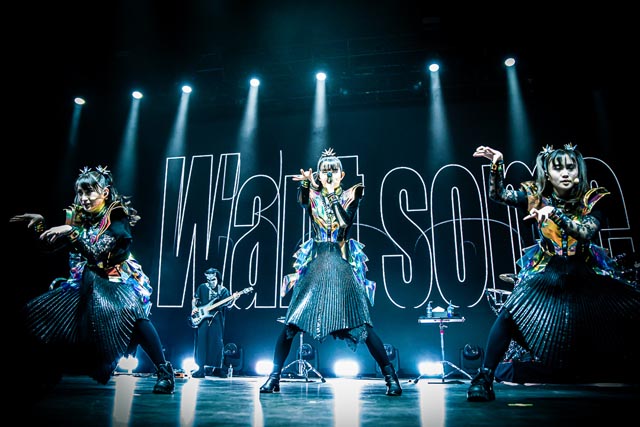
Photo Credit: Robert Forte
















